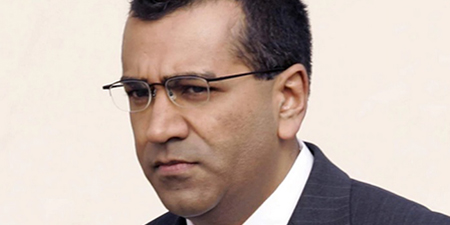Pakistani-origin journalist guilty of deceitfully securing Princess Diana interview
JournalismPakistan.com | Published: 21 May 2021 | Cherie Conela
Join our WhatsApp channel
An inquiry found Martin Bashir guilty of using deceit to secure an interview with Princess Diana in 1995. The BBC acknowledged its failure in maintaining integrity during the process.Summary
LONDON—The British Broadcasting Corporation (BBC) failed to maintain the highest standards of honesty, integrity, and transparency when securing an interview with late Princess Diana in 1995.
This was disclosed in a recent inquiry report stating that Pakistani-origin journalist Martin Bashir (pictured) had forged documents to obtain an interview with the princess. The journalist failed to maintain the corporation’s media guidelines to interview the Princess of Wales.
The investigation, led by former judge Lord John Dyson, disclosed that the BBC “fell short of the high standards of integrity and transparency which are its hallmark.” It is further highlighted that the BBC's own internal inquiry mechanism about the matter in 1996 was very ineffective and not up to the mark. It is worth noting that the 1995 Panorama interview, according to the BBC, had received many awards.
Both the BBC and Martin Bashir have apologized for the unfortunate incident, and the BBC, in his regard, has also written letters of apology to Prince William and Prince Harry.
The BBC said the inquiry report showed "clear failures" and acknowledged that it should have gone deeper into the matter to find out what the facts were at that time.
In his statement, Tim Davie, Director General of the BBC, acknowledged that the BBC understands and accepts the findings of the investigation report are authentic.
Martin Bashir, 58, found guilty for the deceitful interview, also apologized for the professional misconduct and breach of trust.
Photo: Reuters
KEY POINTS:
- Martin Bashir forged documents for the interview with Princess Diana.
- The BBC did not uphold its standards of honesty in the investigation.
- Both the BBC and Bashir have issued apologies for their actions.
- The internal inquiry in 1996 was ineffective and inadequate.
- Tim Davie acknowledged the authenticity of the investigation findings.

























